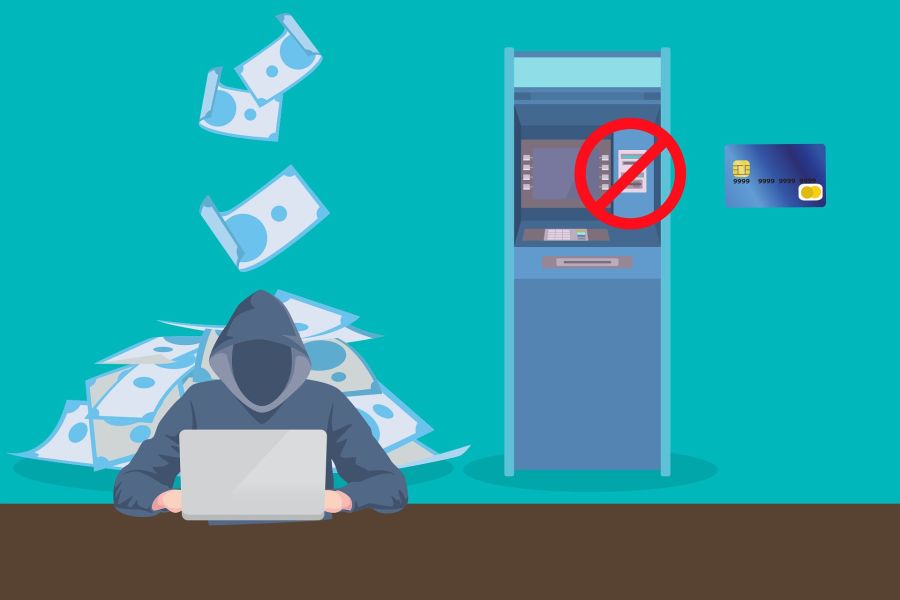
It’s becoming mandatory for e-commerce platforms to follow compliance laws that are connected to product safety, data privacy laws, refunds, warranties, and tax laws. Some might see this as a challenge, but there’s a solution to everything.
E-commerce platforms are always collecting customer data and this is vital for making sure they can effectively promote their products and services, collect purchase information, and even send out personalized offers.
However, compliance laws are changing year by year due to new regulations. While many e-commerce businesses aren’t always updated with the latest changes, it’s important that you are.
To make sure you can overcome compliance challenges, we’re going to dive deeper into this article to show you how to do so.
Complying with data privacy regulators
E-commerce platforms collect and store sensitive information from their customers, including both financial and personal data. Compliance with data privacy regulators such as the General Data Protection Regulation (GDPR) and the California Consumer Privacy Act (CCPA) is vital, depending where you live and in which area you are engaging your online business in.
A recent report showed that more than 90% of companies are compliant, but 10% are still not following the exact rules of data privacy laws. Therefore, it’s important to ensure secure data storage, processing, and transmission, obtaining the proper consent for data usage and collection.
Worldwide data privacy regulators like the GDPR and CCPA are setting strict guidelines for individuals in the collecting, processing, and storing process of customers’ personal data. Nevertheless, each year, there are new regulations to follow.
You can comply with data privacy rules by taking the following steps:
- Conduct a data privacy audit: Review the data you are collecting, how it’s stored, and who can access it. It’s always best to not allow everyone to have access to sensitive information, only team members that are assigned to deal with data should have access to it. This is for avoiding internal fraud threats.
- Obtain consent for collecting data: Inform your customers on the data you are collecting and for which purpose. Also, don’t forget to offer them an opt-out option.
- Train your employees: Your team needs to know more about following data privacy practices and how important it is to comply with them. Conduct regular updates on any changes made and make sure that regulations are well-informed.
- Regularly update policies: Keep track of data privacy changes and update policies accordingly.
Failing to protect customers’ data can result in penalties and fines, so it’s best to hire a data privacy consultant to keep you updated on any changes made.
Preventing fraud with AML software and complying with PCI DSS standards

All e-commerce platforms accepting online payments need to comply with PCI DSS standards for protecting customers’ payment information during transactions. Overcoming this can only be done by implementing a secure payment system, encrypting data transmissions, and regularly monitoring and testing security systems.
AML software tools are an excellent way for helping companies meet legal requirements of preventing financial crime and money laundering activities. Key features of a AML software include:
- Transaction monitoring: You need to be aware of how money is passing through your system at all times. This is even more important when it’s a larger sum of money. AML tools provide real-time transactional monitoring.
- Real-time alerts: An alerting system is great for informing you to take action instantly when you need to. Prolonging actions against fraud can instantly give fraudsters more space to cause more damage.
- ID-proofing tools: Enables secure digital ID verification for your customers, providing strong security measures and a user experience.
- Adaptive learning: More advanced AML tools can incorporate Machine Learning (ML) and Artificial Intelligence (AI) that allow the system to continuously learn from new data and adapt to newer money laundering attacks.
- Reporting suspicious activity: Businesses need to monitor customer deposits and transactions. Sums exceeding $10,000 need to be given extra attention and to make sure their origin is verified.
AML software is great when it comes to handling large amounts of transactional data. Businesses can easily automate transactions without any human intervention by scanning multiple data sources, reducing the need for manual intervention. This helps E-commerce platforms overcome the challenge of preventing fraud against customers and meeting PCI DSS standards.
Following consumer protection laws
Consumer protection laws relate to your refund policies, warranties, and product safety features.
The Magnuson-Moss Warranty Act requires all store owners to include warranties if any other written warranty is offered by your online store. The warranty makes sure that the product will last for a certain period of time, or that you’ll offer a refund the money back in case it doesn’t, or offer free repairs under warranty.
Excluding warranties isn’t a good idea and only makes customers skeptical of why they should trust you. In fact, 38% of online shoppers claimed they wouldn’t purchase a product if the site didn’t offer any protection plans.
Moreover, something else to be concerned about is the safety of your product. This can also be referred to as ‘’Product Compliance,” which means showing enough evidence that the products meet essential legal requirements. Product compliance is set by the parliaments and regulatory bodies. Effective product compliance standards include:
- Properly packaging your products
- Including the proper documents for your product, which is the test reports, certificates, and declaration of conformity.
- Your products are correctly labeled, which means the country of origin label, CPSIA tracking label, and CE mark.
Failing to comply with product safety can cause serious trouble. For example, not including a safety warning while you ship toys for children. People’s safety should be a priority and this is what an e-commerce platform should guarantee.
Complying with tax laws

E-commerce platforms need to be able to comply with all tax laws including value-added tax (VAT), online transaction taxes, and other taxes that are applicable to online transactions. It’s important for e-commerce platforms to be able to accurately calculate and collect taxes based on the customer’s location and product or service type.
E-commerce taxation is the total taxation based on sales and income tax, which are part of the major revenue taxes. In the e-commerce world, there are three different types of e-commerce taxes which are the Sales (VAT) tax, Income tax, and Digital Services tax.
Tax implications differ and e-commerce tax will fall under three categories, which are: International considerations, Valued-added Tax (VAT) in Europe, and tax implications for cross-border sales.
Firstly, If you want to comply with tax laws, you need to register for sales tax permits. You need to hold a license for collecting and remitting taxes in every state you are engaging in. It’s best to initially contact your taxing authority where you start the registration process.
Each state will have a different application process, but after your application is approved, you’ll receive your sales tax permit. Don’t forget that the taxing authority will list a set of rules you need to follow during taxation.
Secondly, it’s now time to start collecting sales taxes and learn which sale transactions fall in the state’s tax laws. The types of products that are subject to taxation vary from state to state, and are different across regions. Once you identify which product goes under taxation, it’s now time to calculate your sales tax rate. The rate will combine both state and local rates. The tax is collected from customers when they make the purchase.
Thirdly, companies that collect and submit taxes are required to file sales tax returns. The frequency of collecting and submitting taxes will depend on the state, which can either be done quarterly, monthly, or even annually. It’s best to file these returns on time to avoid any penalties, or extra charges for late filing. Making errors in returns, and even missing deadlines can lead to penalties. Therefore, it’s important to stay informed and be updated on the exact deadlines.
Why overcoming compliance challenges is important for your e-commerce platform
Since you are selling products and services online, it’s important to comply with all important data regulations, tax laws, consumer laws, and protect customers’ payment information when they complete a transaction.
Online businesses that violate consumer protection laws, or any other laws concerning taxes and data privacy will face penalties, competitive disadvantages, product recalls, fines/penalties, and more.
With a huge growth in regulatory changes, having a solution and staying on top of all recent changes gives you a significant competitive advantage and helps in keeping your e-commerce reputation safe.
Author: Tony Ademi

Founder Dinis Guarda
IntelligentHQ Your New Business Network.
IntelligentHQ is a Business network and an expert source for finance, capital markets and intelligence for thousands of global business professionals, startups, and companies.
We exist at the point of intersection between technology, social media, finance and innovation.
IntelligentHQ leverages innovation and scale of social digital technology, analytics, news, and distribution to create an unparalleled, full digital medium and social business networks spectrum.
IntelligentHQ is working hard, to become a trusted, and indispensable source of business news and analytics, within financial services and its associated supply chains and ecosystems






























